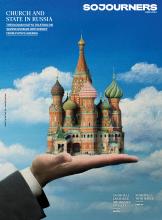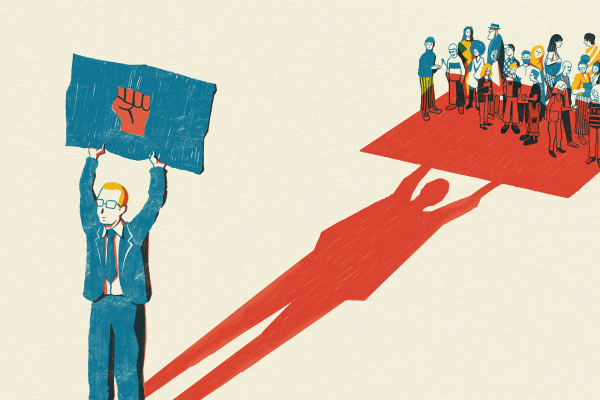Editor’s note: A version of this article first appeared on sojo.net on Jan. 9, 2024 as “What DEI Trainings and Evangelical Retreats Have in Common.”
JONATHAN TRAN TELLS a story he encountered while researching his book Asian Americans and the Spirit of Racial Capitalism, about Chinese immigrants who lived in the Mississippi Delta during the Reconstruction period. After the Civil War, Tran says, white people not only prevented Black people from living in certain neighborhoods and attending schools with their white children — they discriminated similarly against people of Chinese descent.
But dissimilar to the Delta’s Black population, the Chinese immigrants were able to open modest grocery stores, which allowed them to accumulate wealth thanks to Black patronage. In this way, the Delta Chinese immigrants saw their material conditions improve — but this improvement came under a system of white supremacy, which necessitated the exclusion of the Delta’s Black population.
Tran tells this story to demonstrate the ways that capitalism and white supremacy have become intertwined. In a nod to the Black radical tradition, Tran refers to this system as racial capitalism. The account also demonstrates Tran’s commitment to storytelling. He doesn’t explain the negative effects of racial capitalism in a removed or abstract way; rather, he leans into the complicated histories that have pitted racially marginalized groups against one another.
Tran, an associate dean of Baylor University’s Honors College and an associate professor of theology, understands how stories are influenced by material reality — which is why, for Tran, criticism of racism that does not also include a critique of the capitalist system is wrong-headed. But Tran doesn’t just critique racial capitalism or anti-racist enterprises that avoid economics. Tran believes that Christian theology offers an alternative story to racial capitalism, one that finds its locus in the “divine economy.”
Tran talked with sojo.net associate opinion editor Josiah R. Daniels last fall about Christian theology, anti-racism, W.E.B. Du Bois, and what it means to live into a reconstructed reality. — The Editors
Read the Full Article

